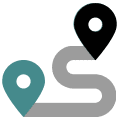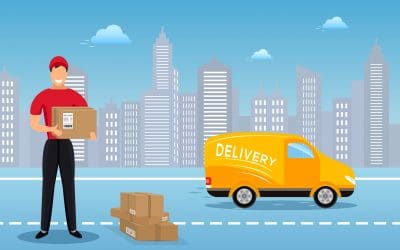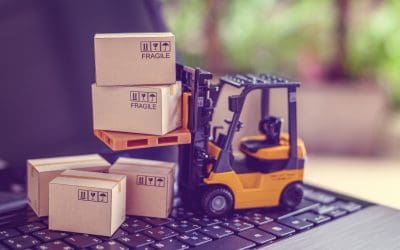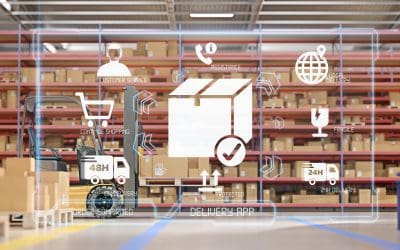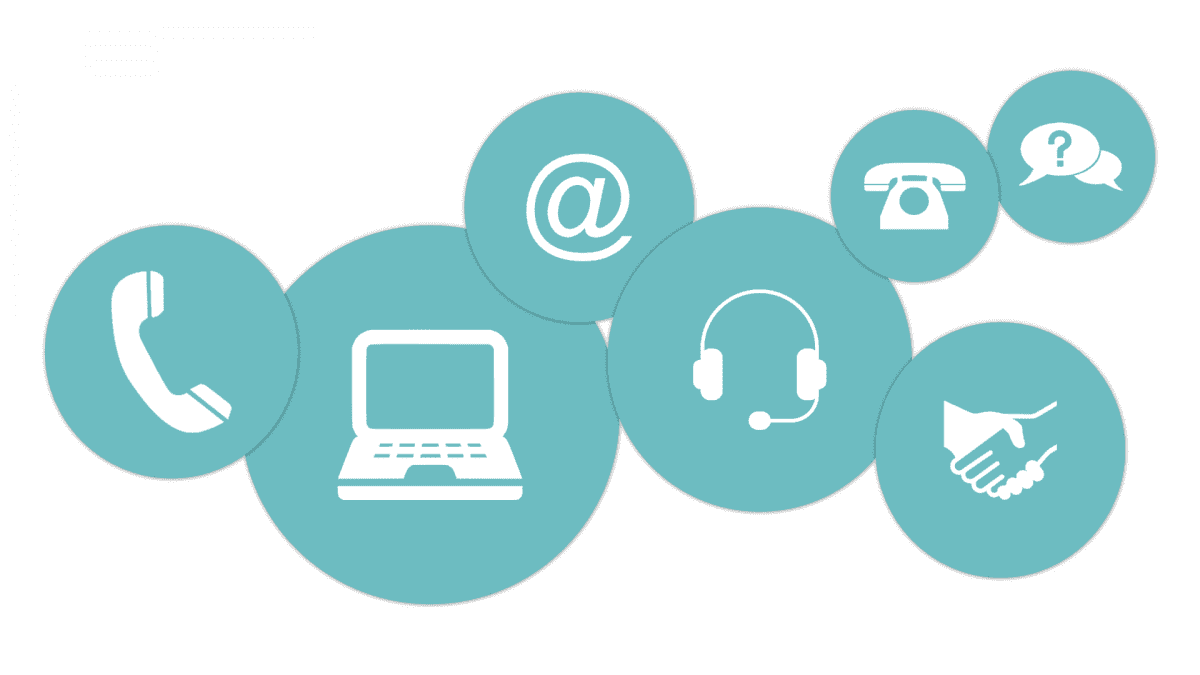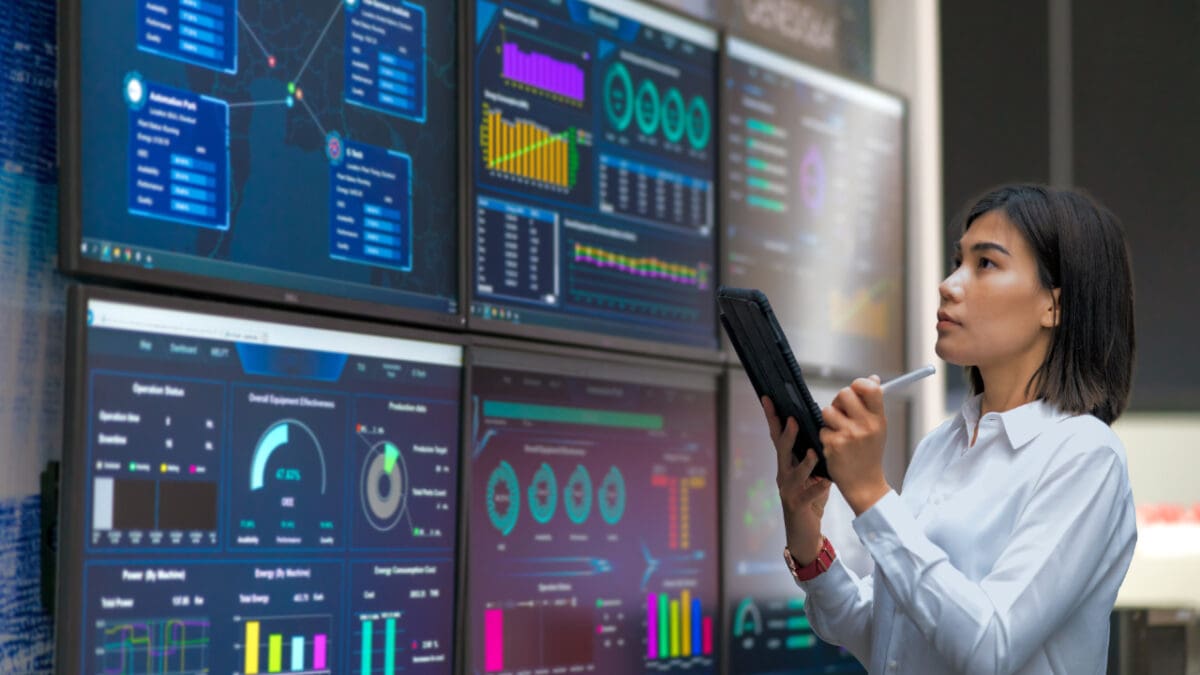
Both ERP (Enterprise Resource Planning) and CRM (Customer Relationship Management) tools are essential tools that can help businesses improve performance and serve customers. Choosing the right tool is essential for every stage of your customer interactions and business management. Especially when it comes to last-mile delivery management. In general, ERP tools manage the company’s core operations, including financial and delivery solutions. Meanwhile, CRM tools are designed to manage customer interactions. While ERPs may offer some of the same tools and analytics found in CRM systems, CRM tools generally do not have the same features found in an ERP. As you consider whether you need an ERP vs CRM for last-mile deliveries, make sure you understand the functionality and benefits of each. Let’s break it down:
What is an ERP?
An ERP, or Enterprise Resource Planning solution, is a type of software that provides resource management solutions for businesses. That can include several essential functions:
- Automation: ERPs can automate several essential logistics processes. Instead of requiring hands-on support from team members, the ERP can take on many of those functions, including ordering, approval, or delivery management.
- Visibility: An ERP is an essential tool for providing visibility into essential business operations, including the delivery process. ERPs can help with inventory tracking and monitor delivery progress, offering vital insights into where the delivery is in the system and any essential information necessary to complete it.
- Inventory Management and Forecasting: ERPs are an essential part of inventory management. They can help track what inventory is available across locations and offer more information about how inventory may need to be shifted. They can also track what inventory is coming in, including what shipment they’re on and when they should be ordering. ERPs may even automate ordering or inventory transfer. In addition, they can provide vital forecasting information that will help businesses prepare for their future needs.
- Proof of Delivery: Your ERP can provide essential proof of delivery, letting you know when deliveries have arrived at their final location. As a result, you do not have to wonder about where deliveries are in the system, and you are much less likely to lose track of essential inventory.
- Returns Management: In addition to its other functions, an ERP can help with return management, allowing you to create a smooth reverse supply chain that decreases resource loss and ensures that you know where your inventory is as it moves back through the system. In some cases, returns can be taken on at the same time as the last-mile delivery process.
What is a CRM?
A CRM, or Customer Relationship Management tool, is a type of software that allows businesses to manage their relationships with customers and connect with them more effectively. A CRM is all about tracking interactions with customers, from the marketing stage to the purchase or returns stage. It provides several vital functions.
- Sharing Customer Information: The CRM is key to sharing vital information about customers, from their expectations to their delivery preferences. With the CRM up-to-date, you are less likely to miss essential points of the customer experience–and better prepared to ensure that you deliver on their requirements. This integrated experience ensures that customers will have the same interaction with your business regardless of when they connect with you.
- Proof of Delivery: CRMs can provide essential proof of delivery to customers. You can store photos, signatures, and more within the system so that if customers have any questions about their deliveries, you can easily refer back to it.
- Data Analysis: CRMs can provide several insights into customer behavior and needs. Through data analysis, you can get a better look at customer ordering patterns, including when they are most likely to order and what new products will probably catch their eye. You can also get deeper insight into customers’ busiest periods, the times when they are best prepared to accept deliveries, and how their expectations are likely to shift in the future.

Key Differences Between ERP and CRM for Last-Mile Deliveries
When considering ERP vs CRM for your last-mile deliveries, carefully consider the benefits of each one and the differences between them.
Data Integration vs. Customer Focus
ERPs are designed with a holistic business management functionality in mind. They are designed to help you handle all the logistical and operational details of running your business, and they provide end-to-end data and analytics that can help you decrease costs and improve productivity. CRM tools, on the other hand, have a more customer-centric approach. They are designed to provide more information about customers’ needs and expectations so that you can provide a better overall customer experience.
Order Processing and Fulfillment vs. Customer Communication
Each system has its own focus area when it comes to last-mile logistics. While the ERP system focuses on order processing and fulfillment, as well as all the steps necessary to progress through the system, the CRM system will focus on customer communication. Not only does the CRM offer essential information about customer needs that can shape your last-mile delivery decisions, it can offer essential insights to your customers. With customer-facing software, you can ensure that your customers know when their deliveries are coming, what inventory is on them, and other essential information that may shape their business decisions.
Scalability and Automation
Both ERP and CRM solutions are designed to be scalable as your business grows. However, CRM solutions may not be designed to handle large-scale delivery needs, especially as your brand grows. Make sure you are familiar with the scalability of the solution you have chosen and how it will fit your future needs and plans for your business.
When to Use an ERP for Last-Mile Deliveries
There are several situations under which an ERP should be used for your last-mile delivery considerations. First and foremost, it is the most efficient choice for managing the entire supply chain and integrating delivery data with other business functions. If you want to include last-mile delivery information alongside your other business data needs, an ERP may be the best solution for you.
Complex Inventory Management
When you have a complex inventory management system to keep up with, whether that means juggling a complex array of locations or managing extensive inventory, an ERP may be your best solution for tracking and managing last-mile deliveries. When you have complex inventory management needs, an ERP can allow deeper insight into where all your inventory is and what your current and future inventory needs look like. In addition, an ERP can provide better solutions for efficiently delivering those goods.
Resource Optimization
Resource management is a critical part of protecting your business and ensuring that your customers are satisfied with the quality of service they receive from you. If you want to optimize your resource allocation, an ERP could provide your best last-mile delivery tracking solution. With an ERP, you can better track how and when inventory moves through your system as well as what your current needs look like. It may, for example, give you more information about the best delivery route from a business standpoint or offer insight into how you can best manage inventory allocation.
Want more industry insights?
Subscribe to our newsletter to receive weekly last mile logistics insights directly to your email inbox each week!
When to Use a CRM for Last-Mile Deliveries
Using a CRM for last-mile deliveries is the better choice for improved customer satisfaction. It offers immense benefits in managing customer satisfaction and ensuring that customer needs are taken into account throughout the last-mile delivery process, just like they are in other areas of your business.
Improved Customer Communication
Using a CRM means that you are much better positioned to provide customers with the information they need, when they need it. In some cases, a customer-facing solution can allow customers to access the information they need more easily. Your CRM can also send out automated information that will ensure that customers know what to expect, from when deliveries will come in to what inventory will be part of each delivery. That enhanced customer communication can improve your overall connection to your customers.
Enhanced Customer Engagement
Customer engagement with your business is essential to the continuing business relationship. Engaged customers are more likely to think of your business when they need something you can provide. Using your CRM to handle last-mile delivery tracking and management ensures that customers have access to more information, which will often increase their desire to interact with your business. Do they need to change delivery instructions? Optimize their ordering? Your CRM helps make that process easier on both sides. Furthermore, your CRM can collect and analyze customer data to ensure that they are getting what they need from your brand.
Combining ERP and CRM for Optimal Last-Mile Delivery Performance
Both ERP and CRM provide immense benefits for your last-mile delivery logistics. Selecting the right tool can make a big difference in your ability to oversee essential operations and ensure that you provide the standard both your customers and your company deserve. With Elite EXTRA, you don’t have to choose. Our last-mile software solutions integrate with both ERP and CRM platforms to ensure smooth data flow across your entire last mile.
Operational Efficiency and Customer Insights
With Elite EXTRA, you can utilize optimized route planning solutions that take into account customer needs as well as the most efficient solution for your business, all in one convenient tool. In addition, Elite EXTRA offers real-time driver tracking that allows you to keep up with where your drivers are. Finally, the platform offers ETA notifications to customers so that they can prepare ahead of time for when deliveries will arrive.
Instead of choosing between customer needs and the needs of your business, you can integrate them into one seamless platform that allows you to consider multiple data points. In addition, you can better keep up with customer communications and improve engagement at the last stage of the delivery process.
Customizable Solutions
Your business’s needs are unique. You may not look at the same factors as another company when considering delivery routing, or you may need to look at different data from your customers. With Elite EXTRA, you get customizable solutions that are intended to fit your unique company workflows. As a result, you get a last-mile delivery solution focused on your business, not a one-size-fits-all solution.

Use Elite EXTRA for Your Last-Mile Delivery Needs
Both ERPs and CRMs play an essential role in last-mile delivery. While ERPs assist with tracking vital information for your business and enhancing business operations, CRM systems are key for improving customer communication, engagement, and satisfaction. By choosing the right tool based on your business needs, you ensure that you are providing the best experience not only for your customers, but for your business.
No matter which platform you choose to use for your last mile, know that at Elite EXTRA, we can integrate with it. Combine the power of your ERP/CRM platform with best-in-class logistics management from Elite EXTRA to master the last mile. Contact us today to learn more!

